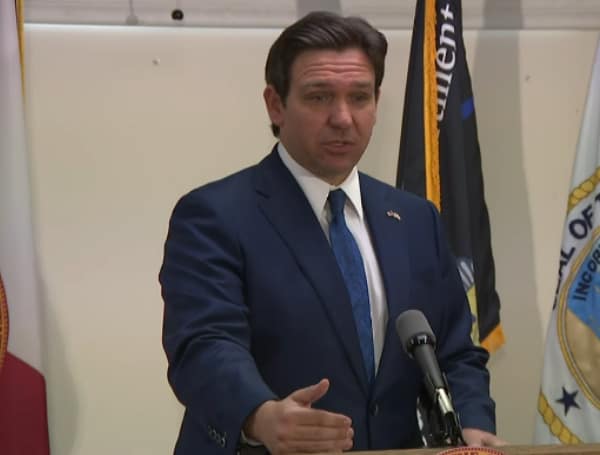In a move that has ignited intense debate, the state of Florida has enacted a law aimed at cracking down on the employment and transportation of undocumented immigrants.
This legislation, signed into law by Governor Ron DeSantis in 2023, has sparked a fierce legal battle, with a federal judge recently issuing a temporary injunction against a key provision.
The law, known as Senate Bill 1718, seeks to amend existing human smuggling statutes, making it a felony to bring individuals without lawful immigration status into the state of Florida.
Read: State Of Florida To Repeal Renewable Energy Goals After Gov. DeSantis Bill Signing
Proponents argue that this measure is necessary to address the growing influx of unauthorized immigrants, while critics contend that it oversteps the state’s authority and infringes on the federal government’s exclusive jurisdiction over immigration matters.
The Federal Court Intervenes
In a significant development, U.S. District Judge Roy Altman, appointed by former President Trump, has issued a temporary injunction halting the enforcement of the transportation provision. In his decision, Altman acknowledged the plaintiffs’ concerns, stating that the law “extends beyond the state’s authority to make arrests for violations of federal immigration law and, in so doing, intrudes into territory that’s preempted” by the federal government.
The judge’s ruling highlighted the potential for “irreparable injury” if the law were to be enforced, citing testimony from plaintiffs who expressed fear of traveling in and out of Florida with their undocumented friends or family members, fearing arrest or deportation.
The temporary injunction has provided a temporary respite for immigrant communities in Florida, who have expressed deep concerns about the law’s impact. Advocacy groups, such as the American Civil Liberties Union and the Southern Poverty Law Center, have joined the legal battle, arguing that the law would place thousands of people, including U.S. citizens, at risk of arrest for simple acts like driving a relative to a doctor’s appointment or going on a family vacation.
Read: Florida Gov. DeSantis Wipes Out ‘Climate Change’ Language But Focuses On Reliable Energy
The plaintiffs have shared testimonies of the law’s potential consequences, including lost job opportunities, family separation, and the inability to access essential services due to fear of crossing state lines.
The Florida law is part of a broader trend among Republican-controlled states to take a more aggressive stance on immigration. Across the country, states like Texas, Iowa, and Oklahoma have passed laws empowering local officials to enforce federal immigration laws, drawing criticism from the Biden administration and immigrant rights groups.
These state-level initiatives have become a central political battleground, with Republicans blaming the Biden administration’s policies for the surge in illegal border crossings and seeking to take matters into their own hands. The upcoming 2024 elections are likely to further intensify the debate, as the issue of immigration continues to be a divisive and polarizing topic.
The Biden administration and immigrant rights groups have sought to challenge these state-level immigration laws, arguing that they overstep the federal government’s authority. The U.S. Department of Justice has filed lawsuits against several states, asserting that the Constitution grants the federal government exclusive jurisdiction over immigration matters.
In the case of Florida’s transportation law, the federal government has not yet intervened directly, but the temporary injunction issued by Judge Altman suggests that the provision may indeed be unconstitutional. The ongoing legal battle will likely have far-reaching implications for the balance of power between the states and the federal government in the realm of immigration policy.
Read: Florida Governor DeSantis Announces Record-Breaking Tourism Numbers
The transportation law’s impact extends beyond the legal and humanitarian concerns. Experts warn that the measure could have significant economic consequences for Florida, particularly in the agricultural sector. The Farmworker Association of Florida has estimated that around 100 member families, who typically return to the state after the harvest season, may choose not to do so this year to avoid the risk of being charged with a felony.
This exodus of seasonal workers could create labor shortages and disrupt the state’s agricultural industry, which relies heavily on the contributions of immigrant workers.
Additionally, the law’s potential to deter businesses from operating in Florida or hiring undocumented individuals could have broader economic ripple effects, potentially impacting the state’s overall economic growth and competitiveness.
Help support the Tampa Free Press by making any small donation by clicking here.
Android Users, Click To Download The Tampa Free Press App And Never Miss A Story. Follow Us On Facebook and Twitter. Sign up for our free newsletter.

